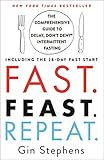🎧 Audio Article
This is Part 3 of a 4-part series on the power of creatine for brain, muscle, and metabolic health.
Creatine
Creatine has long been associated with bodybuilders and gym buffs. But while it’s one of the most studied and safest supplements out there, it’s also surrounded by a storm of misconceptions and myths — some of which might be stopping you from using a supplement that could improve your health, strength, and even brain function.
A comprehensive review published in JISSN (Journal of the International Society of Sports Nutrition) in 2021 summarized decades of research and tackled the top concerns and questions surrounding creatine.
Let’s break it down — myth by myth — and see what the evidence actually shows.

👉 🎧 Listen to: Creatine Supplementation — Facts, Not Fiction
✅ Key Takeaways: 11 Myths About Creatine – Debunked
🧠 Myth #1: Creatine Damages the Kidneys
False.
Over 20 years of research shows that creatine does not harm kidney function in healthy people when taken at proper doses (3–5 g/day). While creatine may raise serum creatinine (a muscle byproduct), this is not a sign of kidney dysfunction.
💇♂️ Myth #2: Creatine Causes Hair Loss or Baldness
Not proven.
Only one small study showed a temporary rise in DHT (a hormone linked to hair loss). But no study has shown actual hair loss from creatine use. The theory lacks strong evidence.
💧 Myth #3: Creatine Causes Dehydration and Cramping
Wrong.
Controlled studies found no increase in dehydration or cramping. Some even show that creatine users had fewer injuries and better heat tolerance.
⚖️ Myth #4: Creatine Increases Fat Mass
Nope.
Creatine may cause a slight weight gain, but it’s due to water inside the muscle and lean mass, not fat. Multiple trials showed no increase in body fat.
⚠️ Myth #5: Creatine Is an Anabolic Steroid
Absolutely not.
Steroids are synthetic hormones. Creatine is a naturally occurring compound found in meat. It has zero hormonal activity and is not classified as a drug.
🔁 Myth #6: You Must Load Creatine
Optional.
Loading (20 g/day for 5–7 days) helps saturate muscles faster but isn’t required. A daily dose of 3–5 g works just as well over a few weeks, without the temporary water weight.
🚹 Myth #7: Creatine Only Works for Men
Incorrect.
Creatine works for women too — improving strength, lean mass, and even brain health. It may be particularly helpful during menopause, pregnancy (under supervision), and for mood regulation.
🏋️ Myth #8: Creatine Is Only for Athletes
Not true.
Creatine supports recovery, strength, and function in older adults, vegetarians, and people with neurological conditions. It helps with aging, fatigue, and muscle loss.
🧒 Myth #9: Creatine Is Unsafe for Children or Teens
Not supported.
Though long-term studies are limited, short-term trials in adolescents and pediatric patients show no harmful effects. The FDA lists creatine as “Generally Recognized As Safe (GRAS)” for intended use.
🔬 Myth #10: Other Forms Are Better Than Creatine Monohydrate
Marketing, not science.
Despite fancy names, no other form of creatine has outperformed creatine monohydrate, which is the most researched, effective, and affordable option.
🧠 Myth #11: Creatine Doesn’t Benefit the Brain
Wrong again.
Creatine supports brain energy, especially during stress, sleep deprivation, and mental fatigue. It may reduce symptoms of depression and help in

How to Use Creatine Safely
- Loading (optional): 20g/day for 5–7 days (split into 4 doses)
- Maintenance: 3–5g/day
- Timing: Can be taken before or after workouts, or anytime during the day
- Hydration: Drink extra water to stay hydrated, as creatine draws water into muscle cells
- Nutricost Micronized Creatine Monohydrate 3,000mg 500 Capsules
- BulkSupplements.com Creatine Monohydrate Powder – Unflavored & Gluten Free, 5g (5000mg) per Serving, 500g
- As an Amazon Associate, I earn from qualifying purchases.
🧠 Closing Comment
Creatine isn’t just for bodybuilders. It’s for anyone who wants to move better, think clearer, and age stronger — backed by science, not myths.
For more no-nonsense, science-based health articles and audio, visit drjessesantiano.com.
Don’t Get Sick!
Stay current by subscribing. Feel free to share and like.
Follow me on Truth Social, Gab, Twitter (X), Facebook, Follow, and Telegram.
You May Also Like:
- Office Hacks for Blood Sugar Balance: Quick Moves You’ll Love
- Conquer Sugar Spikes With A Simple Morning Green Tea Ritual
- Antioxidants And Timing: How To Reduce Blood Sugar-Related Oxidative Stress
- Health Benefits of Alpha Lipoic Acid: The Excellent Antioxidant
- Flaxseed: Lowers Sugar And Awesome Source of Valuable Omega 3
- 11 Best Morning Supplements For Energy
- Mastering Diabetes: Prevent Hypoglycemia with Smart Medication Adjustments
- 102 Easy Ways to Lower Post-Prandial Blood Sugar Without Meds
- The Simple Way To Keep Blood Sugar Low: Breakfast
- Meal Timing: A Practical Guide To Weight Loss And Better Health
- 18 Powerful Strategies To Prevent Blood Sugar Spikes During The Holidays
- Applying The Best Behavior Change Techniques At Home For Better Health
- A Tool Box of Strategies to Prevent Blood Sugar Spikes When Eating High Glycemic Index Foods
- The Blood Sugar Lowering and Metabolic Effects of Vinegar
- Ways to Lower After-Meal Blood Sugar when Eating White Bread
References:
Antonio J, Candow DG, Forbes SC, Gualano B, Jagim AR, Kreider RB, Rawson ES, Smith-Ryan AE, VanDusseldorp TA, Willoughby DS, Ziegenfuss TN. Common questions and misconceptions about creatine supplementation: what does the scientific evidence really show? J Int Soc Sports Nutr. 2021 Feb 8;18(1):13. doi: 10.1186/s12970-021-00412-w. PMID: 33557850; PMCID: PMC7871530. https://pmc.ncbi.nlm.nih.gov/articles/PMC7871530/#Sec14
© 2018 – 2025 Asclepiades Medicine, LLC. All Rights Reserved
DrJesseSantiano.com does not provide medical advice, diagnosis, or treatment
As an Amazon Associate, I earn from qualifying purchases.
Complete Guide To Fasting: Heal Your Body Through Intermittent, Alternate-Day, and Extended Fasting
60% OffDiscover more from Don't Get Sick!
Subscribe to get the latest posts sent to your email.








